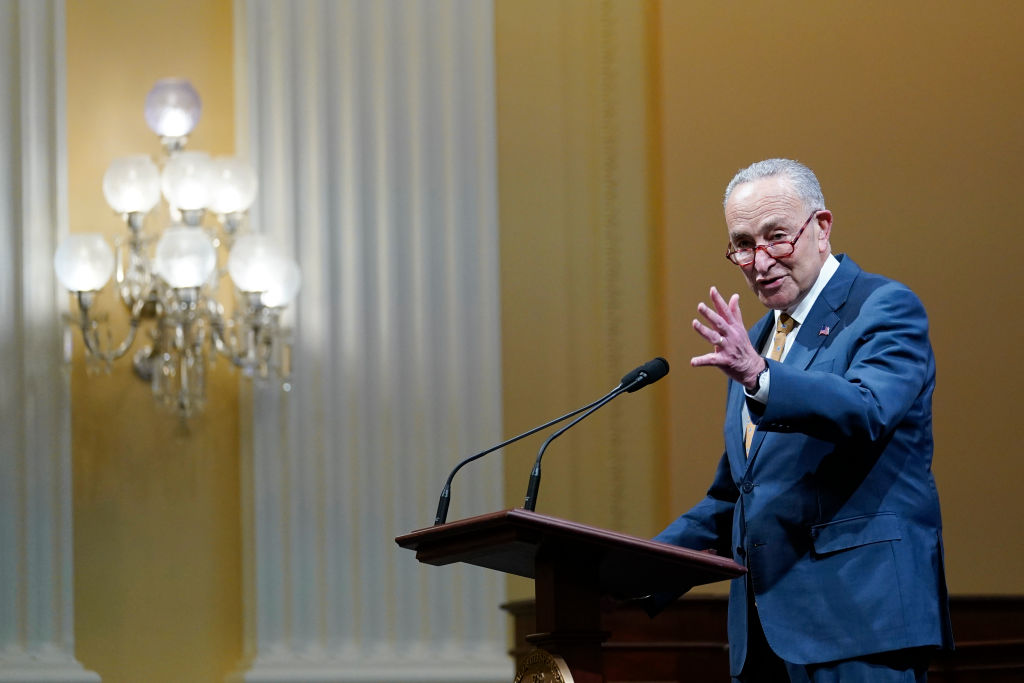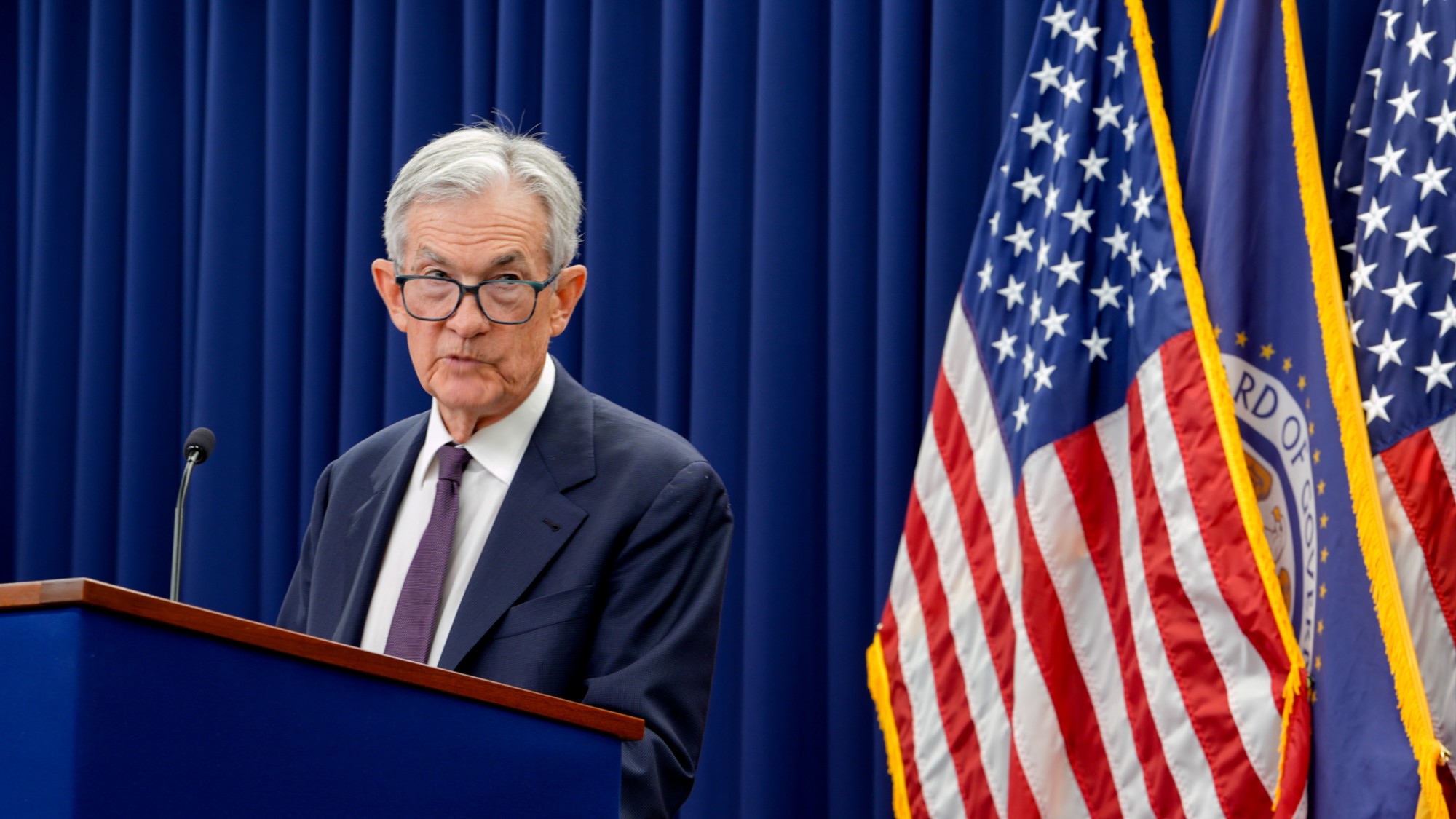The filibuster changes Senate Democrats are actually considering


President Biden will speak Tuesday to align himself with Senate Democrats and endorse altering chamber rules to advance important voting rights legislation, The Associated Press reports. But what exactly do upper chamber Democrats want, and what rules changes are they talking about?
At the moment, Senate Democrats aren't looking to completely eliminate the 60-vote threshold — also known as the filibuster — that's required to pass most legislation, Politico reports. Rather, they're mulling voting along party lines to change chamber rules, a process known as going "nuclear," to pass election and voting reform bills. In a 50-50 Senate, however, Democrats will need every members' vote for any tweaks to succeed.
As one option, Democrats have discussed a return to a "talking filibuster," under which a senator from the minority party can talk for as long as they want to block a bill, Politico writes. Debate continues until 60 senators vote for it to end (similar to current rules), or the minority party "leaves a vacancy on the floor — at which point the majority party can move to final passage of the bill, requiring only a simple majority vote."
The Week
Escape your echo chamber. Get the facts behind the news, plus analysis from multiple perspectives.

Sign up for The Week's Free Newsletters
From our morning news briefing to a weekly Good News Newsletter, get the best of The Week delivered directly to your inbox.
From our morning news briefing to a weekly Good News Newsletter, get the best of The Week delivered directly to your inbox.
Democrats are also considering lowering the required votes to start debate on a bill from 60 to 50, which could be done in conjunction with the talking filibuster, notes Politico.
Additionally, though unlikely, the party has discussed implementing a filibuster "carveout" allowing a one-time exception to pass voting legislation with a simple majority, as well as altering the number of senators needed to end a filibuster from 60 to three-fifths of those actually voting that day.
"In other words," explains Politico, "if 80 senators show up for a specific vote, the Senate would only need 48 members to vote to end a filibuster instead of 60."
Another option considers requiring 41 minority party votes to continue filibustering, or else debate would automatically end.
A free daily email with the biggest news stories of the day – and the best features from TheWeek.com
Brigid Kennedy worked at The Week from 2021 to 2023 as a staff writer, junior editor and then story editor, with an interest in U.S. politics, the economy and the music industry.
-
 Which way will Trump go on Iran?
Which way will Trump go on Iran?Today’s Big Question Diplomatic talks set to be held in Turkey on Friday, but failure to reach an agreement could have ‘terrible’ global ramifications
-
 High Court action over Cape Verde tourist deaths
High Court action over Cape Verde tourist deathsThe Explainer Holidaymakers sue TUI after gastric illness outbreaks linked to six British deaths
-
 The battle over the Irish language in Northern Ireland
The battle over the Irish language in Northern IrelandUnder the Radar Popularity is soaring across Northern Ireland, but dual-language sign policies agitate division as unionists accuse nationalists of cultural erosion
-
 Will Peter Mandelson and Andrew testify to US Congress?
Will Peter Mandelson and Andrew testify to US Congress?Today's Big Question Could political pressure overcome legal obstacles and force either man to give evidence over their relationship with Jeffrey Epstein?
-
 Trump sues IRS for $10B over tax record leaks
Trump sues IRS for $10B over tax record leaksSpeed Read The president is claiming ‘reputational and financial harm’ from leaks of his tax information between 2018 and 2020
-
 Trump, Senate Democrats reach DHS funding deal
Trump, Senate Democrats reach DHS funding dealSpeed Read The deal will fund most of the government through September and the Department of Homeland Security for two weeks
-
 Fed holds rates steady, bucking Trump pressure
Fed holds rates steady, bucking Trump pressureSpeed Read The Federal Reserve voted to keep its benchmark interest rate unchanged
-
 Judge slams ICE violations amid growing backlash
Judge slams ICE violations amid growing backlashSpeed Read ‘ICE is not a law unto itself,’ said a federal judge after the agency violated at least 96 court orders
-
 Rep. Ilhan Omar attacked with unknown liquid
Rep. Ilhan Omar attacked with unknown liquidSpeed Read This ‘small agitator isn’t going to intimidate me from doing my work’
-
 Democrats pledge Noem impeachment if not fired
Democrats pledge Noem impeachment if not firedSpeed Read Trump is publicly defending the Homeland Security secretary
-
 Can anyone stop Donald Trump?
Can anyone stop Donald Trump?Today's Big Question US president ‘no longer cares what anybody thinks’ so how to counter his global strongman stance?
